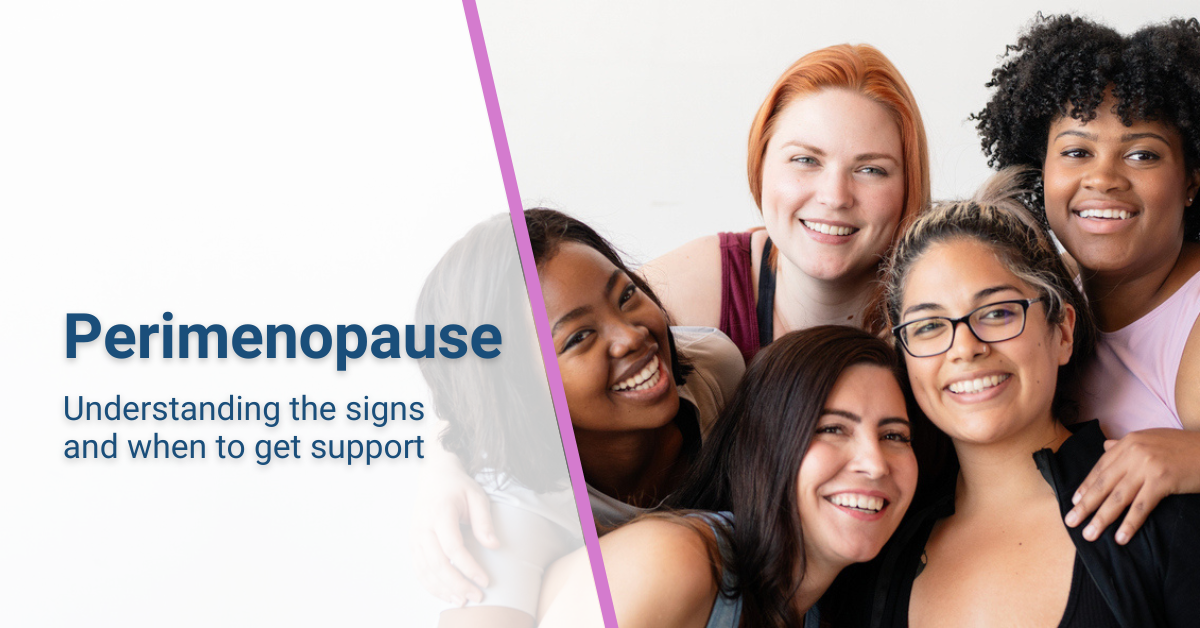You're Not Going Crazy—You're in Perimenopause
June 30, 2025

By: Breanna Pond, MD, OBGYN Associates of Marquette, P.C.
If you've been feeling off lately—maybe your moods swing without warning, sleep is elusive, and your once-predictable cycle has gone rogue—take a deep breath. You're not going crazy. You're likely in perimenopause, and you're far from alone.
Perimenopause is the transitional phase before menopause, and for many women, it can feel like a rollercoaster of unexpected changes. The good news? You’re not imagining it, and you don’t have to suffer through it in silence. There are ways to manage your symptoms, find relief and feel like yourself again.

What Is Perimenopause?
Perimenopause means “around menopause” and typically begins in your 40s—but for some women, it can start in their late 30s. It’s the body’s natural transition toward menopause, the point when you’ve gone 12 months without a period. During perimenopause, hormone levels—especially estrogen—begin to fluctuate, which can lead to a wide range of physical and emotional symptoms.
This stage can last anywhere from a few months to several years. It’s different for everyone, which is why it can be so confusing—and why it’s important to know what to look for.
You Might Be in Perimenopause If You’re Experiencing:
- Irregular periods. Your cycle might suddenly change—longer, shorter, heavier, lighter or missing altogether.
- Hot flashes or night sweats. These sudden surges of heat can hit during the day or wake you up drenched at night.
- Mood swings, anxiety or depression. Feeling more irritable or emotionally fragile than usual? Hormones could be playing a big role.
- Trouble sleeping. Whether it’s falling asleep or staying asleep, many women report insomnia during this phase.
- Brain fog. Difficulty focusing or remembering things? That mental haze is a real symptom.
- Low libido. A decreased interest in sex is common and can be tied to hormonal changes and other symptoms like fatigue or discomfort.
- Vaginal dryness or discomfort. Lower estrogen levels can cause thinning of vaginal tissue, leading to dryness or pain during intimacy.
- Unexplained weight gain. Especially around the middle, even if your diet and exercise haven’t changed.
- Breast tenderness or changes.
- Skin and hair changes. Thinning hair, dryness or increased sensitivity may appear.
This Is Normal—But You Don’t Have to Tough It Out Alone
Here’s the most important thing to remember: Perimenopause is a natural part of life, but that doesn’t mean you have to suffer through it. Too many women chalk up their symptoms to stress, aging or just something they have to live with—but there are real, effective ways to find relief.
“I hear it all the time— ‘I thought I was going crazy.’ But what you’re experiencing is very real, and there are things we can do to help,” says Breanna Pond, MD, at OBGYN Associates of Marquette, P.C. “We want women to feel seen, heard and supported as they navigate perimenopause. This is not something you have to just live with.”
Whether it’s lifestyle changes, nonhormonal treatments or hormone therapy, the first step is talking to your healthcare provider. There is no one-size-fits-all solution, but together, you can create a plan that works for you.
You Deserve Support, Not Silence
For years, women's health issues — especially those related to menopause — haven’t been talked about enough. But that’s changing. More and more, it’s being recognized that these symptoms aren’t “just in your head,” and they’re not something you should just “push through.”
At UP Health System, we’re here to listen, to validate your experience, and to help you navigate this chapter of life with confidence and care. If you’re experiencing symptoms and wondering what’s going on, don’t wait. Reach out to your provider. Let’s talk about what’s happening, how it’s affecting you, and how we can help.
You're Not Alone—and You're Not Losing Your Mind
Perimenopause can be unpredictable and frustrating, but it’s also manageable. The more you understand what’s going on in your body, the more empowered you’ll feel to take care of yourself—mentally, physically and emotionally.
Let’s normalize the conversation. Let’s support each other. And most importantly, let’s make sure no woman feels like she has to go through this alone.
Need a provider? Call 844-411-UPHS (8747) or visit UPHealthSystem.com to learn more or schedule an appointment with Dr. Breanna Pond.
